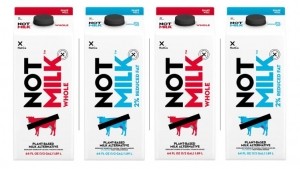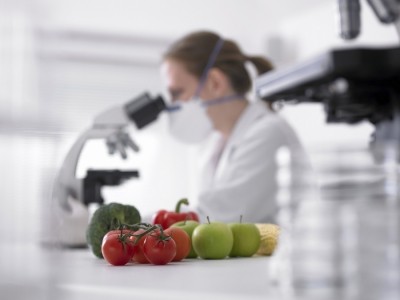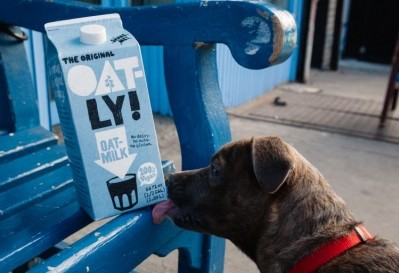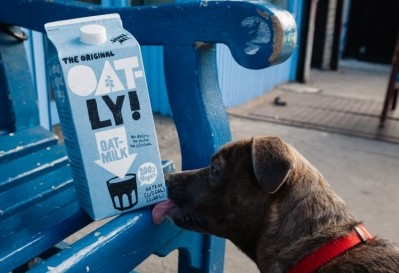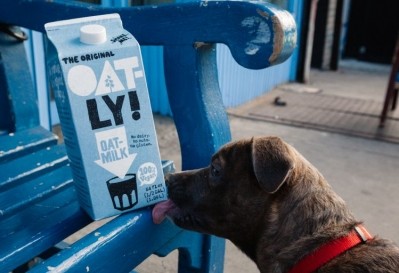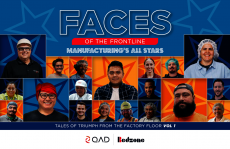FDA aims to publish voluntary sodium reduction goals, draft guidance on labeling of plant-based milk alternatives by mid-2022
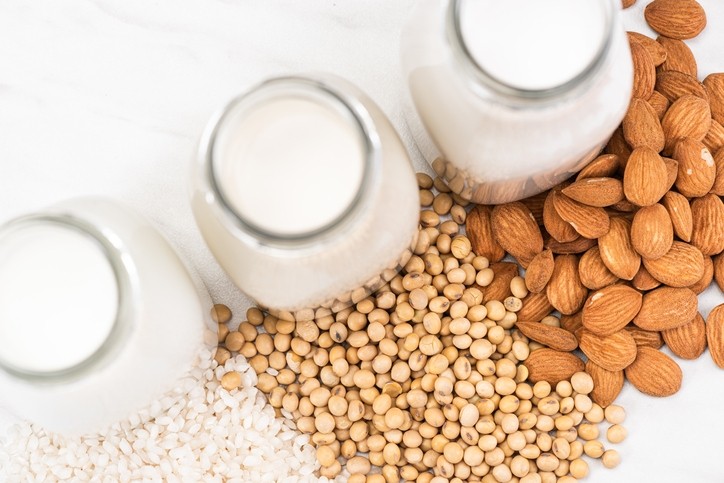
In a constituent update issued on Tuesday listing guidance documents it aims to publish by next summer, the FDA also highlighted plans to produce draft guidance on ‘Lead action levels for categories of foods consumed by babies and young children’ in the wake of the recent Congressional Subcommittee report into heavy metals in babyfood.
It did not provide any indication that it plans to define ‘natural’ for the purposes of food labeling, a process initiated in 2015 and something former FDA commissioner Dr Scott Gottlieb said the FDA was still working on in 2018, but has not been referenced by the agency since.
Plant-based milk labeling
However, it does intend to address the hotly-contested practice of using dairy terms to describe plant-based products, adding that it plans to issue draft guidance on ‘labeling of plant-based milk alternatives’ by the end of June 2022.
While terms such as 'soymilk' and 'oatmilk' are prohibited in the EU (where Oatly is an Oat Drink), they are widely used in the US (where Oatly is Oat Milk). And the FDA - say critics - has fluctuated unhelpfully on the issue of whether such terms mislead shoppers or violate federal standards of identity, which limit the term 'milk' to the "lacteal secretions" of cows.
For example, the FDA queried the term ‘soy milk’ in warning letters to a couple of manufacturers in 2008 and 2012, but thereafter maintained radio silence on the topic until Dr Gottlieb re-ignited the debate in mid-2018, telling delegates at the Politico Pro summit in Washington that, “We have a standard of identity for milk and I intend to enforce that… an almond doesn’t lactate.”
Gottlieb also noted, however, that there could be First Amendment issues to address, and that the FDA could face legal challenges by suddenly banning terms such as ‘almondmilk,’ having tacitly endorsed such terminology on food labels for years.
“The question becomes, have we been enforcing our own standard of identity? The answer is probably not… I’d need to at the very least issue a guidance document suggesting we’re going to enforce our existing standard of identity differently. That’s what we intend to do.”
A request for information issued in Setember 2018 to solicit feedback on the issue generated a dizzying number of comments (13,000 according to the FDA), with milk producers arguing that the word ‘milk,’ even with the term ‘almond’ before it, falsely implies nutritional equivalence to dairy, and The Good Food Institute and the Plant Based Foods Association arguing that there is no evidence that consumers are confused or that they assume oatmilk or almondmilk should precisely match the nutrition of dairy milk.
Voluntary sodium targets
Voluntary sodium reduction targets – which the FDA says it also hopes to publish by the end of June 2022 - are also a long time coming (the FDA proposed voluntary guidelines in 2016, setting two-year and 10-year goals for 158 food categories, but they were never finalized).
The document released this week doesn’t provide any detail on the new targets beyond stating that it plans to issue guidance for industry on ‘Voluntary Sodium Reduction Goals: Target Mean and Upper Bound Concentrations for Sodium in Commercially Processed, Packaged, and Prepared Foods.’ Read more about sodium reduction targets HERE.
Asked by our sister publication NutraIngredients-USA about topics that are not on the list such as CBD, an FDA spokesperson said: “The FDA intends to post the list of human food guidance topics annually at the beginning of each calendar year and also conduct scheduled updates mid-year to reflect any significant changes.
“The list will highlight the priorities that the foods program is considering for each calendar year. However, the FDA may not issue every proposed guidance topic listed within that calendar year and may still publish other guidance documents that are not included on this list. The FDA may decide on which guidance topics to publish based on, among other things, current and emerging public health issues and presidential priorities.
“However, Agency resources and focus may shift at any time to support emerging and the most pressing public health needs during the calendar year. The FDA cannot give specific details about any of the listed guidance topics.”
What is 'milk'?
FDA standards of identity define the unqualified term ‘milk’ as the 'lacteal secretion, practically free from colostrum, obtained by the complete milking of one or more healthy cows.'
According to plant-based brands, who typically use a modifier (eg. almond-milk) and additional qualifiers (eg. dairy-free, plant-based, non-dairy) to make it clear they are not selling dairy milk, such standards of identity were designed to address fraud and economic adulteration, not to prevent plant-based alternatives from referring to standardized terms (eg. milk) in their marketing altogether.
Courts handling false advertising cases over plant ‘milks’ have tended to agree, arguing that the federal standard of identity for milk does not categorically preclude a company from giving food products names that include the word ‘milk.’
For example, in a case vs Trader Joe’s, judge Vince Chhabria noted that the word ‘soy’ before ‘milk’ cleared up any confusion as to the contents of the package in question: “Trader Joe's has not, by calling its products ‘soymilk,’ attempted to pass off those products as the food that the FDA has standardized (that is, milk).”
As for nutritional equivalency, Stephen Wilson, the judge handling a false advertising case vs Blue Diamond Growers (Almond Breeze) in California, did not buy the argument that the word ‘milk’ came with a certain set of nutritional expectations, adding: “If the consumer is concerned about the nutritious qualities of the product, they can read the nutrition label..."
It is not yet clear how the FDA will regard cell-cultured milk (made from lactating mammalian cells in a bioreactor) or milks made with dairy fats and proteins produced via microbial fermentation.
